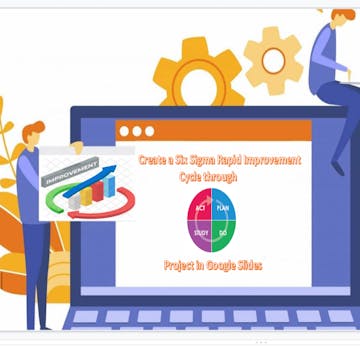
By the end of this project, you will be able to create and understand the continuous quality improvement model consisting of a logical sequence of four repetitive steps for continuous improvement and learning: Plan, Do, Study and Act. You will be learning how...
Read more
Two deals to help you save
Good to know
Save this course
Activities
Review core concepts of continuous quality improvement (CQI)
Show steps
Reinforce the foundational principles of CQI to enhance your understanding of the course material.
Browse courses on
Continuous Quality Improvement
Show steps
-
Read and summarize key articles or book chapters on CQI.
-
Review notes or materials from previous courses or workshops related to CQI.
-
Take practice quizzes or engage in online discussions on CQI concepts.
Show all one activities
Review core concepts of continuous quality improvement (CQI)
Show steps
Reinforce the foundational principles of CQI to enhance your understanding of the course material.
Browse courses on
Continuous Quality Improvement
Show steps
- Read and summarize key articles or book chapters on CQI.
- Review notes or materials from previous courses or workshops related to CQI.
- Take practice quizzes or engage in online discussions on CQI concepts.
Career center
Process Improvement Analyst
Quality Assurance Manager
Operations Manager
Project Manager
Continuous Improvement Manager
Business Analyst
Management Consultant
Quality Engineer
Process Engineer
Data Analyst
Statistician
Software Engineer
Industrial Engineer
Systems Engineer
Quality Control Inspector
Reading list
Share
Similar courses
OpenCourser helps millions of learners each year. People visit us to learn workspace skills, ace their exams, and nurture their curiosity.
Our extensive catalog contains over 50,000 courses and twice as many books. Browse by search, by topic, or even by career interests. We'll match you to the right resources quickly.
Find this site helpful? Tell a friend about us.
We're supported by our community of learners. When you purchase or subscribe to courses and programs or purchase books, we may earn a commission from our partners.
Your purchases help us maintain our catalog and keep our servers humming without ads.
Thank you for supporting OpenCourser.



